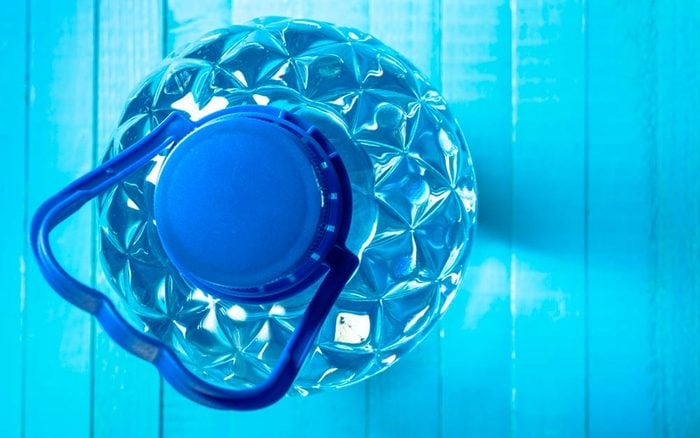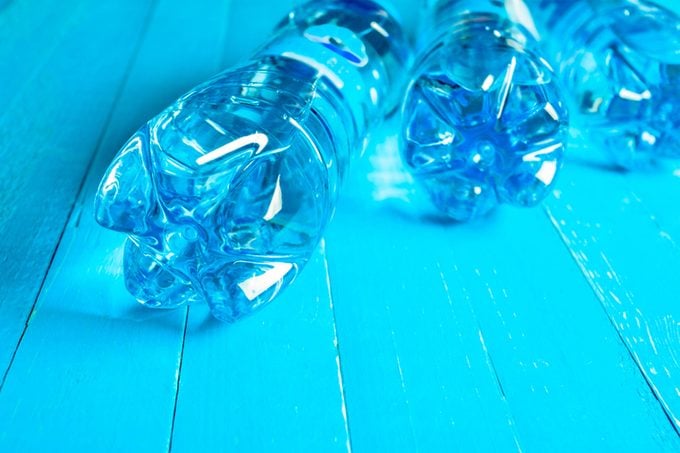This Is Why You Should Never Refill Your Plastic Water Bottle
Updated: Jan. 25, 2021

We’re all guilty of refilling plastic water bottles—but the consequences may be potentially harmful for your health.
Most of us don’t think twice about refilling our plastic water bottles. After all, it’s all in the name of personal hydration—plus, it’s eco-friendly. And there’s absolutely nothing harmful about a simple bottle of water, right?
Wrong. You can thank Bisphenol A (commonly known as BPA), a chemical used to manufacture polycarbonate plastics, for your water woes since this harmful chemical can leach into the water.
Researchers have linked BPA to a wide range of health issues. This includes certain endocrine disorders that affect both male and female fertility, increasing the risk of certain hormone-dependent cancers like breast cancer and prostate cancer, as well as a tie to polycystic ovary syndrome (PCOS) in women. And BPA isn’t the only issue with bottled water. One study in Frontiers in Chemistry analyzed water bottles from different manufacturers and countries and found that 93 percent had tiny particles of plastic, known as microplastics, that leached out into the bottled water.
Still, many manufacturers today are opting for BPA-free products. Some replace it with BPS or BPF, both of which may still disrupt your cells, according to 2015 research published in Environmental Health Perspectives. This research also explains why plastic is one of the things you should really never microwave. Plastic goods with recycling numbers 3 and 7 may contain BPA, BPS, or BPF.

Reusable plastic bottles aren’t much better, either. In a study conducted by Treadmill Reviews, researchers tested different types of reusable water bottles used by athletes for a week and found that the bacteria count reached more than 313, 499 colony-forming units per square centimeter, on average, depending on the type of bottle. Get this: That’s more bacteria than the average toilet seat. Plus, 60 percent of those germs were able to make people sick. (Learn why you should rethink reaching for water that’s been sitting overnight for these same reasons.)
To hydrate without harm, smart drinkers should avoid re-using disposable bottles. Instead, you should recycle them after drinking once; or, better yet, invest in a bottle made from glass or stainless steel. Not only will doing so benefit your health, but you can help the environment, too. There are plenty of other shocking statistics that will make you stop using plastic, as well.
